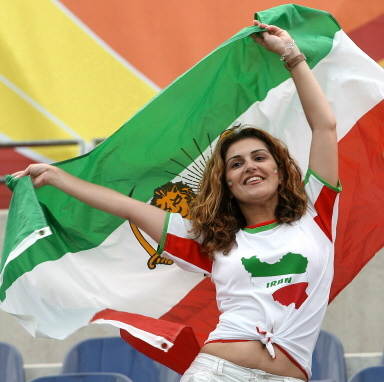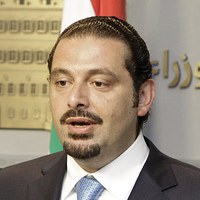Sun, June 27, 2010 | Intelligence and Terrorism Information Center
Iran’s President Ahmadinejad strongly criticized by conservatives for comments on Islamic dress code enforcement
President Mahmoud Ahmadinejad was strongly criticized by the conservative camp this week for comments made early last week against enforcing the Islamic dress code on women. In a television interview he gave on June 12, Ahmadinejad said that the government had no part to play in forcing women to wear veils according to the Islamic dress code, and that the government did not involve itself with that issue. He indicated that, while being aware of the need to solve the morality problems of Iranian society, he was against the enforcement of that issue. If there are problems in society, the president said, they must be solved wisely, lawfully, and with respect of human dignity rather than by coercion. He even noted that it was inappropriate for internal security forces to address men and women walking together on the street and ask them about the nature of their relationship. The government does not accept such conduct, he said, and will monitor the implementation of the Islamic code enforcement.
The president’s comments, made on the backdrop of the increasingly strict enforcement of the Islamic dress code in recent weeks, were strongly criticized by conservative circles, including some usually considered to be the president’s supporters. Ayatollah Ahmad Jannati, the Friday prayer leader in Tehran and chairman of the Guardian Council, addressed the president’s comments during his weekly sermon, claiming that no one had the right to question the activities of the internal security forces in the enforcement of the Islamic dress code. That fight is not just a cultural matter, just as the fight on drug traffickers and thieves is not limited to the cultural sphere. He expressed regret that the president had brought up that issue, stressing that, in Islam, wearing a veil is an important matter that must be adhered to (various news agencies, June 18). Friday prayer leaders in other cities also mentioned the president’s comments in their sermons. Seyyed Yousef Tabataba’inejad, the Friday prayer leader in Esfahan, said that the fight on corruption was the responsibility of all sectors of society. According to Tabataba’inejad, the Iranian people did not accomplish the Islamic revolution just to obtain nuclear energy, but also to establish an Islamic government. Conservative cleric and Mashhad Friday prayer leader Ayatollah Seyyed Ahmad Alam al-Hoda also addressed the issue in his weekly sermon, saying that not wearing a veil was tantamount to moral corruption and that the government must deal with any kind of corruption in a resolute and organized fashion, just as it deals with other examples of corruption (Alef, June 18).
Mohammad Taghi Rahbar, chairman of the Majles clerics’ faction, also criticized the president, claiming that Ahmadinejad had in fact green-lighted immodest dress. He expressed willingness to confront the president to discuss the issue of veils (ILNA, June 16).
Senior cleric Mohammad Taqi Mesbah-Yazdi, considered to be President Ahmadinejad’s spiritual guide, also had criticism for his comments, saying the claim that the government was not responsible for taking action on matters of religion and that clerics were responsible for such matters was an expression of secular thought that condoned religion-state separation. In Islamic thought, said Mesbah-Yazdi, regulating the people’s religious affairs is one of the key missions of the authorities (Asr-e Iran, June 17).
Even the conservative daily Keyhan, which normally supports the government and President Ahmadinejad, broke ranks last week by criticizing the president for his comments. An article titled “Mr. President, we did not expect this from you” says that most Iranians consider modest dress an important positive value, and immodest dress a great sin. Cultural activity does not make law enforcement unnecessary. When public norms are violated, those responsible must be punished by law—saying that the government is not responsible makes no sense. The president’s comments contradict the Islamic and revolutionary fundamentals of his thought, Keyhan says, and appear to reflect the bad advice given by some of his advisors who seek to provoke conflict between him and the clerics (Keyhan, June 15).

Modern Iranian woman with flag of Pahlavi Dynasty (1925-1979). During the Pahlavi Dynasty women could wear Western style clothing.
Ever since he was elected as the president of Iran, President Ahmadinejad has had a complex stance on issues involving religion and women. During the 2005 presidential campaign, Ahmadinejad stated that his government would not enforce the Islamic dress code. After his re-election in 2009, Ahmadinejad announced his intention to appoint women to the cabinet for the first time since the Islamic revolution. Strong opposition prompted Ahmadinejad to reconsider his plan to appoint at least three women to ministers and he was forced to settle for only one woman minister in the Ministry of Health. What is more, the president formerly sparked criticism among conservative circles over issues involving religion and women. In April 2006, the president announced a decision to allow women into soccer stadiums. That decision was strongly condemned by clerics, ultimately forcing him to back down. A tape released in late 2006 showed the president attending the Asia Cup opening ceremony in Doha, the capital of Qatar. His presence also provoked anger from clerics, since the ceremony included several dances performed by women.
In practice, however, the campaign waged by the authorities to enforce the Islamic dress code has stepped up considerably since Ahmadinejad’s election for president, and so did gender segregation in public institutions.



 RSS
RSS











Ahmadinejad Against Enforcement of Islamic Dress Code #iran #shiism #islam #dress #code http://j.mp/agsCY4
RT @CrethiPlethi: Ahmadinejad Against Enforcement of Islamic Dress Code #iran #shiism #islam #dress #code http://j.mp/agsCY4